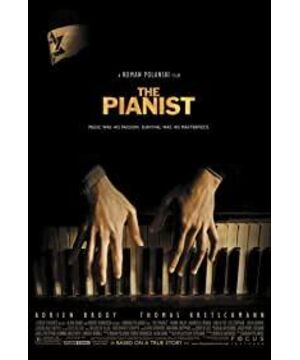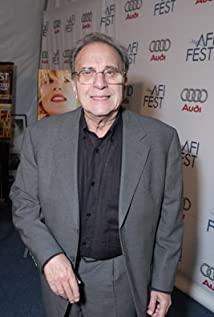In fact, at first I thought that "The Pianist" was not a film accusing totalitarianism. As a true adaptation of the protagonist's escape experience in World War II, the whole film is narrated from an objective and real perspective and a calm and restrained rhythm. Ordinary World War II movies accuse the destruction of human nature by totalitarianism by exaggerating the atrocities of the Nazis and the numbness of the Jews. On the contrary, "The Pianist" can be said to have no emotion, no detailed rhythm, and no distinction between highs and lows. What the protagonist saw and heard during World War II. The Germans, Poles, and Jews in the film are good and bad. The Nazi soldiers did kill people with brutality and cold blood, but there are also German officers who helped the pianist escape at the end of the film; the pianist did get the help of many Poles, but he also There are many Polish restaurants and parks that banned Jews from entering at the beginning of the war, and Polish female neighbors who found out that the pianist was like a Jew who had seen a mouse in the street; many Jews also turned to the Nazis, ignoring and even helping the Germans to slaughter their compatriots "traitors". This is the most objective anti-war movie I've ever seen, because the history I've seen in the books is true. Now when it comes to the slaughter of Jews, most people will only blame Nazi Germany, but during World War II, Poles can be said to have actively cooperated with the slaughter. , "Jedwabne massacre" is the result of the Germans and Poles to eliminate the Jews together. And the German officer who helped the pianist in the film has not only rescued this Jew in history. So, I think the film is actually tearing off the labels of Germans, Poles and Jews, which also made me not feel deeply about totalitarianism when I first watched the film, but, after removing the labels of these people and watching the film, Totalitarianism's distortion or even change of human nature is vividly reflected. It is precisely because there is no longer a deliberate distinction between Germans, Poles and Jews, there are only two kinds of opposition left in the film: the perpetrators and the persecutors in the totalitarian world. Totalitarianism replaces the idea of individual moral responsibility with some kind of fatalism, brainwashes people with ideology, and legitimizes slaughter for historical purposes, so the distorted and fixed Germans and Poles are insensitive, morally corrupt, and wantonly slaughtered. The sharp contrast between the distorted and fixed people under totalitarianism and the normal and free people after tearing off the national and ethnic labels can make people feel the horror nature of totalitarianism even more deeply.
View more about The Pianist reviews











